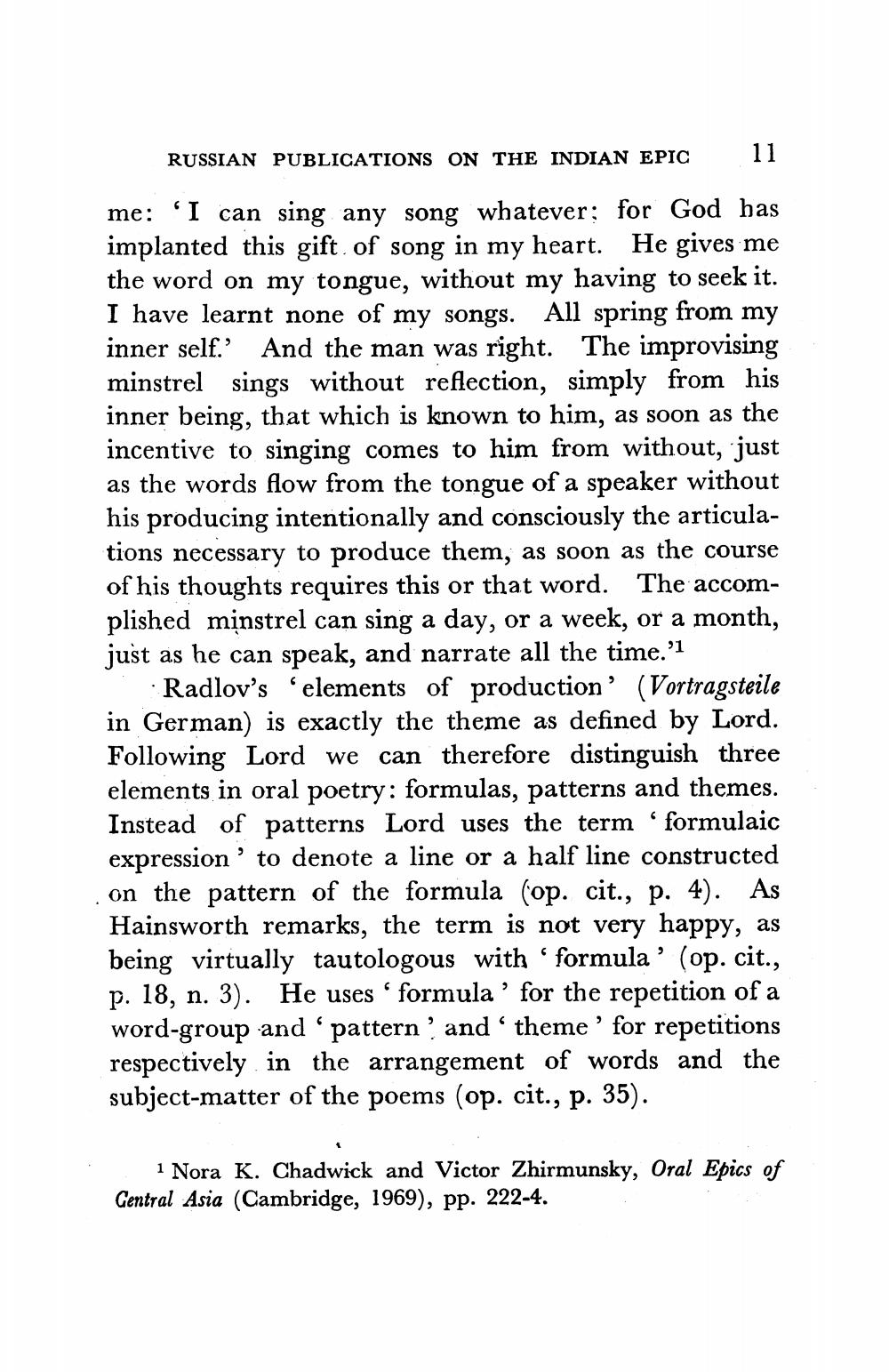________________
RUSSIAN PUBLICATIONS ON THE INDIAN EPIC
11
me: 'I can sing any song whatever; for God has implanted this gift of song in my heart. He gives me the word on my tongue, without my having to seek it. I have learnt none of my songs. All spring from my inner self.' And the man was right. The improvising minstrel sings without reflection, simply from his inner being, that which is known to him, as soon as the incentive to singing comes to him from without, just as the words flow from the tongue of a speaker without his producing intentionally and consciously the articulations necessary to produce them, as soon as the course of his thoughts requires this or that word. The accomplished minstrel can sing a day, or a week, or a month, just as he can speak, and narrate all the time.'1
Radlov's 'elements of production' (Vortragsteile in German) is exactly the theme as defined by Lord. Following Lord we can therefore distinguish three elements in oral poetry: formulas, patterns and themes. Instead of patterns Lord uses the term "formulaic expression' to denote a line or a half line constructed on the pattern of the formula (op. cit., p. 4). As Hainsworth remarks, the term is not very happy, as being virtually tautologous with 'formula' (op. cit., p. 18, n. 3). He uses 'formula' for the repetition of a word-group and pattern ' and 'theme' for repetitions respectively in the arrangement of words and the subject-matter of the poems (op. cit., p. 35).
1 Nora K. Chadwick and Victor Zhirmunsky, Oral Epics of Central Asia (Cambridge, 1969), pp. 222-4.




